
Frank Lawton (died 1914) was an American vaudevillian entertainer whose popularity extended far beyond his country's borders. [1]

Frank Lawton (died 1914) was an American vaudevillian entertainer whose popularity extended far beyond his country's borders. [1]
Like so many 19th- and early 20th-century actors who made their living traveling from town to town often under assumed stage names, Frank Lawton's past is difficult to trace. What evidence does exist indicates he was an American born in the late 1850s, [2] probably at Hartford, Connecticut. [1] Some sources state his birth name was Frank Mokeley, a claim that seems to date back to a 1933 New York Times article about his son, film actor Frank Lawton. [3] This may be true, though it has proven difficult to locate any public record or contemporary newspaper article that supports this assertion. In later editions of Who's Who in the Theatre, his full name is listed as Frank Mokeley Lawton. [4]
Lawton's professional debut was in 1874 with the Eureka Minstrels as one half of a song and dance duo with Lew Dockstader. [1] He would go on to team up at one time or another with players Joe Sparks, Billy Mitchell and others before joining in the early 1880s Charles Hale Hoyt's Hole in the Ground and Milk White Flag companies. He later received praise for his role as Spartacus Hubbs in the 1887 Cal Wallace play Pa with the Sol Smith Russell Company. [5] [6] By then Lawton had refined his talents as a singer, dance comedian, bones player and amazing siffleur. The latter talent would one day earn him the title, bestowed by at least one British critic, Champion Whistler of the World. [7] In 1898 Lawton's whistling act was recorded by Fred Gaisberg, one of over a thousand sides of recordings Gaisberg made for Berliner Gramophone and later Gramophone Company of artist working in London. [8] Lawton would spend the greater part of the last twenty-five years of his life touring New Zealand, Australia and Great Britain where he was well received. After a successful run playing Blinky Bill in the musical comedy The Belle of New York with actress Edna May, Lawton chose to stay in London after his company returned to New York in 1899. Frank Lawton died there on April 16, 1914, [1] [9] after a long illness and the collapse of a spectacular production planned for London's Earl's Court had left him in financial ruin. [10] A few weeks later the London theatre district put on a benefit show to raise money for his widow, former dancer Daisy May Collier, and their four children.
Lawton's first known marriage in 1894 to actress Virginia Earle ended in divorce eight years later. [11]
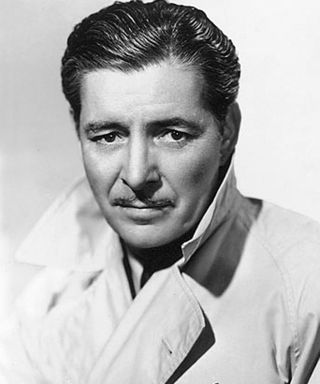
Ronald Charles Colman was an English-born actor, starting his career in theatre and silent film in his native country, then emigrating to the United States and having a highly successful Hollywood film career. He starred in silent films and successfully transitioned to sound, aided by a distinctive, pleasing voice. He was most popular during the 1920s, 1930s and 1940s. He received Oscar nominations for Bulldog Drummond (1929), Condemned (1929) and Random Harvest (1942). Colman starred in several classic films, including A Tale of Two Cities (1935), Lost Horizon (1937) and The Prisoner of Zenda (1937). He also played the starring role in the Technicolor classic Kismet (1944), with Marlene Dietrich, which was nominated for four Academy Awards. In 1947, he won an Academy Award for Best Actor and Golden Globe Award for Best Actor for the film A Double Life.
Events in the year 1899 in music.

Frederick William Gaisberg was an American musician, recording engineer and one of the earliest classical music producers for the gramophone. He himself did not use the term 'producer', and was not an impresario like his protégé Walter Legge of EMI or an innovator like John Culshaw of Decca. Gaisberg concentrated on talent-scouting and persuading performers to make recordings for the newly invented Gramophone.

Parker W. Fennelly was an American character actor who appeared in ten films, numerous television episodes and hundreds of radio programs.

Little Johnny Jones is a musical by George M. Cohan. The show introduced Cohan's tunes "Give My Regards to Broadway" and "The Yankee Doodle Boy." The "Yankee Doodle" character was inspired by real-life Hall of Fame jockey Tod Sloan.

Ernest Truex was an American actor of stage, film, and television.

Lyle Stathem Bettger was an American character actor who had roles in Hollywood films and television from the 1950s onward, often portraying villains. One such role was the wrathfully jealous elephant handler Klaus from the Oscar-winning film The Greatest Show on Earth (1952).

Earle Foxe was an American actor.
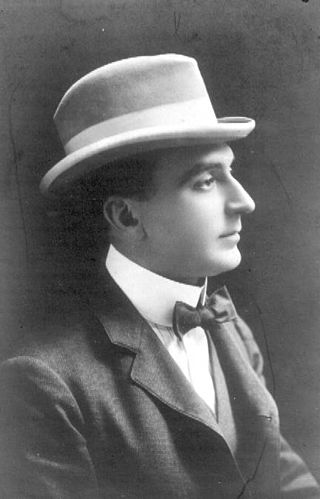
Frank Curzon was an English actor who became an important theatre manager, leasing the Royal Strand Theatre, Avenue Theatre, Criterion Theatre, Comedy Theatre, Prince of Wales Theatre and Wyndham's Theatre, among others.
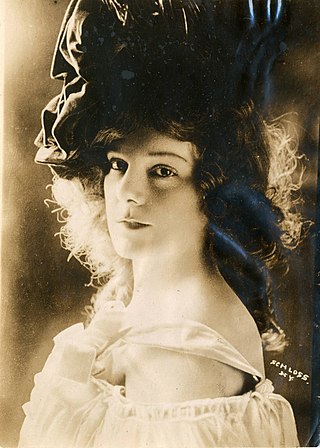
Virginia Earle was an American stage actress remembered for her work in light operas, Edwardian musical comedies and vaudeville over the decades surrounding the turn of the 20th century.
Murray Kinnell was a British-born American actor, recognized for playing smooth, gentlemanly, although rather shady characters. He began acting on the English stage in 1907, toured in the United States from 1912 through 1914, then returned to England where he served in the British Army during World War I. After the war, he emigrated to the US. He appeared in 71 films between the pre-code era of 1930 and 1937. He later served the Screen Actors Guild in several positions for 16 years.

Cecil Raleigh was the pseudonym of Abraham Cecil Francis Fothergill Rowlands, an English actor and playwright.
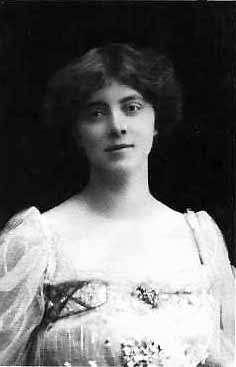
Viola Tree was an English actress, singer, playwright and author. Daughter of the actor Herbert Beerbohm Tree, she made many of her early appearances with his company at His Majesty's Theatre. Later she appeared in opera, variety, straight theatre and film.

Lawrence Randall Grossmith was an English actor, the son of the Gilbert and Sullivan performer George Grossmith and the brother of the actor-manager George Grossmith Jr.
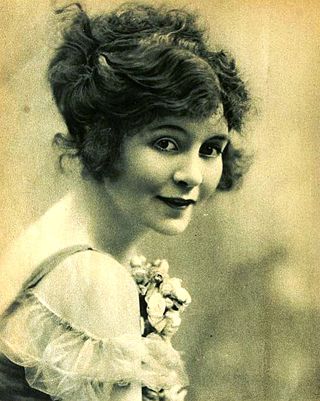
Carroll McComas was an American stage, film, and television actress.
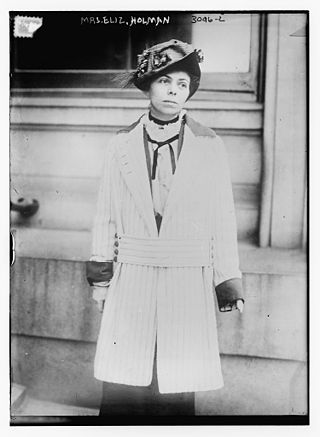
Elizabeth Alden Curtis Holman was an American writer who was the plaintiff in a 1914 United States Federal Court ruling on forced institutionalization.
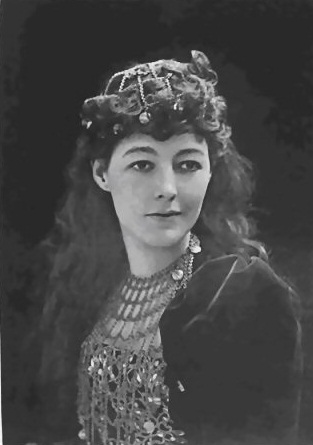
Mary Augusta "May" Yohé was an American musical theatre actress. She began her career in 1886 with the McCaull Comic Opera Company in New York and Chicago. After other performances in the United States, she quickly gained success on the London stage, beginning in 1893. There she created the title role in the hit show Little Christopher Columbus in 1894.

Katie Seymour was a British Victorian burlesque and Edwardian musical comedy entertainer who was remembered primarily for her dancing. She was considered, if not the first, one of the first to perform a style of dance called the skirt dance. Seymour began in song and dance routines at a very young age and would go on to appear in a string of highly successful long-running musicals staged at London's Gaiety Theatre during the 1890s. She fell ill in 1903 while on a theatrical tour of British South Africa and died not long after her return voyage home.

Richard Gordon was an American actor in vaudeville and films and on stage and radio. He was perhaps best known for portraying the title role in the radio version of The Adventures of Sherlock Holmes.

Louise Alexander, born Jennie Louise Spalding, was an American theatrical and social exhibition dancer between 1905 and 1916. She began as a chorus girl, soon became a pantomime dancer, then an exhibition social dancer in restaurants and on the vaudeville stage.
His father was the late Frank Mokeley, an American actor